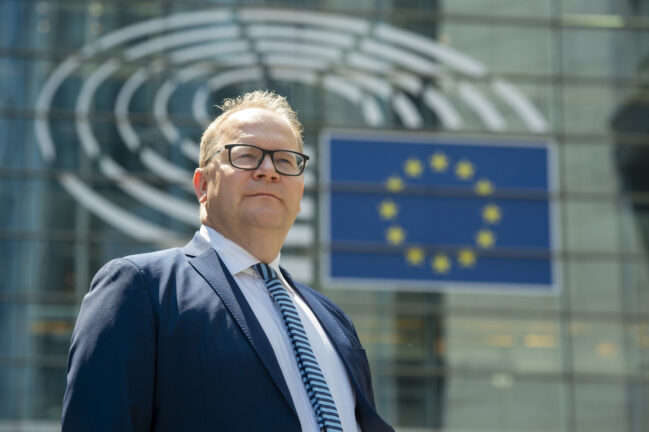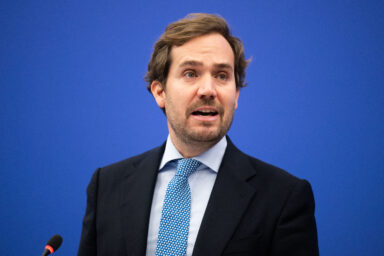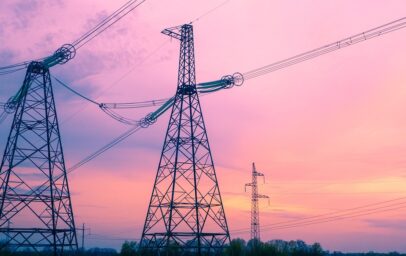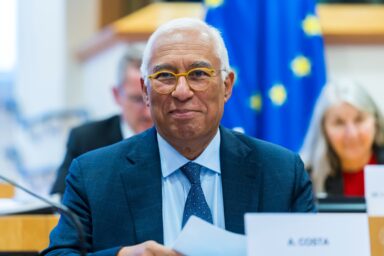Russia and China are expanding their presence in the Arctic, from space cooperation to military buildup. As tensions rise, Estonian liberal parliamentarian Urmas Paet argues that the accession of Iceland, Greenland and Norway to the EU is the first step towards effective deterrence.
The Arctic is a geopolitically challenging area for security, with the EU, China, and Russia vying for places at the table. Recently, Russia and China have declared their intention to strengthen ties in all areas of aerospace activities, including even the space sector. They paid particular attention to the tentative construction of a lunar scientific station and the coordination of satellite exploration missions.
Meanwhile, Russian leader Vladimir Putin has a new plan for the Arctic in the works. He eyes the formation of at least ten industrial, technological, and commercial areas by 2030. These are to host the development of small and medium-sized enterprises operating in priority technological sectors.
Russia’s Maritime Collegium
The European Union has condemned the growing militarization of the Arctic. MEPs meeting in the European Parliament’s foreign affairs committee (AFET) have drawn attention to Russia’s extensive military restructuring (including the establishment of its Maritime Collegium, as explained below). This development, they emphasize, combined with China’s clear interest in the region, has increased tensions and undermined regional stability. The rapporteur for the legislative file, MEP Urmas Paet (Renew/EST), spoke to EU Perspectives about how the EU should approach security issues in the region.
Regarding Russia, how will the Maritime Collegium develop?
The Maritime Collegium is a high-level government body established by Mr Putin in August 2024 with the aim to “protect Russia’s national interests in the Arctic”. (Editor’s note: It is to oversee and coordinate Russia’s naval and maritime policies, with a particular focus on the Arctic region and the Northern Sea Route. Also, it has Nikolay Patrushev at the helm, a powerful security figure and a close ally of the Russian strongman leader.)
You might be interested
The formation of the collegium shows how the Russians perceive this part of the world. They regard the Arctic as theirs, and something they now pay a special attention to. Their interest in the region—and hence its militarization—is likelier to grow than not. The only question perhaps is how far the Russians will have to involve China in the equation. China has already declared itself a “near-Arctic state”, making its own ambitions very clear as well.
The report refers to the possible future accession of Iceland, Greenland, and Norway to the EU. What timeframes and conditions does the EU consider realistic for such accessions or enhanced partnerships, and what would be the geopolitical impact for the EU?
The most important element is that there must be a strong public and political will and motivation in Iceland, Greenland and Norway to join the EU. This will and motivation can easily change in time, thus seizing the right momentum is of essence. For example if the public and politicians have a direct experience that results in them strongly realizing that they are better off in a strong and united European Union, that would encourage them to join. For instance, this clearly happened in Finland and Sweden. Due to Russia’s war in Ukraine and Russia’s aggressive behaviour in general in our neighbourhood, they decided to join NATO.
This decision to join must happen from the inside of the society. What the EU can do is to communicate that we would welcome them with open arms. Also, our diplomatic efforts must be directed towards this goal. As for the timeframe, at his moment it is a question when the public political will in these countries arise. But this can change very quickly.
As for the process of joining the EU, it is same for everyone and requires some patience. But as these three countries are already quite aligned with the EU. That is already a very good starting point. Geopolitically, this would be a major win for the EU as well as for Iceland, Norway and Greenland. Likeminded countries and regions must stick together during these very turbulent times.
On critical infrastructure, the AFET report calls for “strengthening the protection of undersea infrastructure” (cables, pipelines). What assessments have been made regarding existing vulnerabilities? What regulatory or financial instruments does the EU propose to address them?
This is a big risk. Above all, countries themselves must pay more attention to protecting underwater infrastructure and to their own laws. They must allow for the swift prosecution of those who damage the infrastructure and for the detention of suspect ships. International cooperation is also important.
The report highlights Indigenous Arctic peoples: “They must be included in decision-making processes.” What measures does it propose to ensure this happens? How does the EU intend to monitor their involvement over time?
Three European Union member states are Arctic countries, Sweden, Finland and Denmark. Thus our main opportunity to support the indigenous people is through our own member states. Cooperation with Iceland and Norway is important, too. Also, we must enhance our physical presence in the Arctic region. That is why I welcome the opening of the EU Office in Greenland. This is a good starting point. In more general terms as well, the EEAS must be more active in the region.











